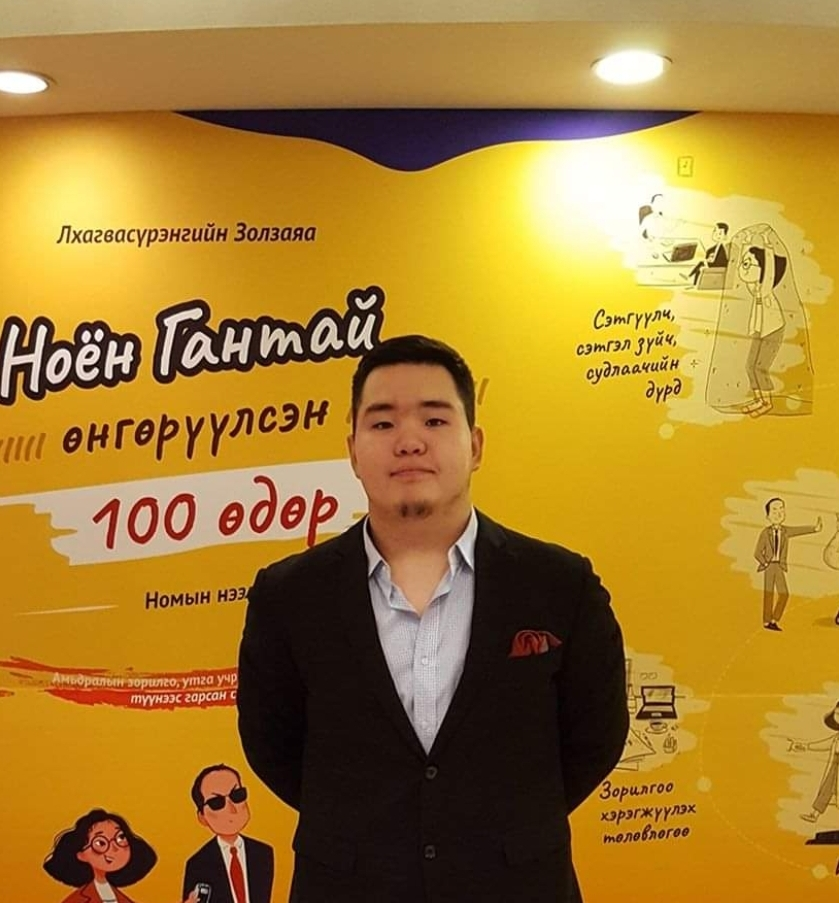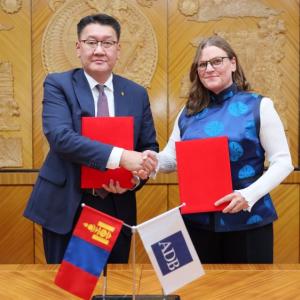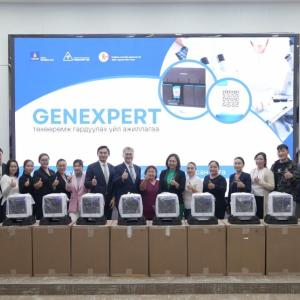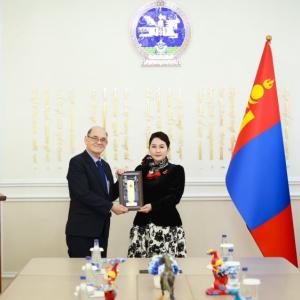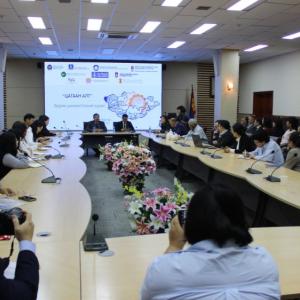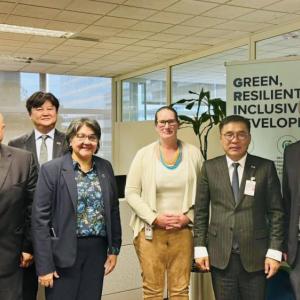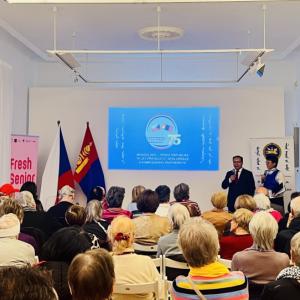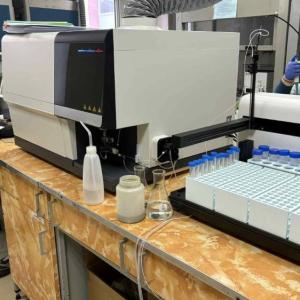Artificial Intelligence Used to Analyze Health Screening Results
Society
Ulaanbaatar, May 8, 2025 /MONTSAME/. The ninth annual "Academic Conference" was convened at the General Hospital for Special State Servants (GHSSS) on May 8, 2025.
A total of 65 researchers from the General Hospital for Special State Servants presented their scientific papers at the conference, contributing to the advancement of evidence-based medicine. The event aimed at promoting scientifically grounded, evidence-based, and patient-centered nursing services, enhancing research methodologies, theory, practice, and knowledge, and providing an opportunity to critically evaluate current operations.
Since November 2024, the General Hospital for Special State Servants has been implementing the “What Matters Most” Program, initiated by the Ministry of Justice and Internal Affairs of Mongolia. The Program focuses on the early detection of illnesses and the assessment of both infectious and non-infectious disease risks among personnel of affiliated organizations. As part of the initiative, officials from the Khangai, Northern, Central, and Western regions underwent preventive screenings.
Artificial intelligence was employed to analyze the screening results, segmenting data by risk factors for non-communicable diseases, occupational characteristics, years of service, and regional disease patterns to forecast potential disease prevalence over the next decade. Among those screened, 57.6 percent had internal medical conditions, 22.9 percent required surgical intervention, and 11 percent were diagnosed with neurological disorders. The most frequently identified conditions included fatty liver, chronic pancreatitis, arterial hypertension, lumbar pain, head and neck pain, hemorrhoids, prostate calcification, gallstones, and deviated nasal septum.
When categorized by age, experts observed that individuals aged 25–30 commonly reported tension headaches, those aged 31–35 experienced cardiac arrhythmias, individuals aged 36–40 suffered from high blood pressure, and persons aged 46 and above were more frequently affected by chronic pancreatitis and hypertension.
 Odongua Nemekhee, Director of the General Hospital for Special State Servants stated, “The feedback we receive from patients allows us to assess and improve departmental operations. Our hospital provides trauma care services regardless of patient jurisdiction. Currently, one nurse delivers 15 to 21 types of nursing services daily, which has quadrupled their workload. The study indicates an urgent need to increase the number of nursing staff in the trauma department to alleviate this burden. Preventive screenings among law enforcement personnel and their families revealed a high incidence of gastrointestinal disorders, suggesting inadequate dietary conditions in their work environments. Among youth aged 18–35, cardiovascular diseases are notably high, primarily due to stress and harmful workplace habits. Furthermore, 67.8 percent of our nurses are overweight and obese.”
Odongua Nemekhee, Director of the General Hospital for Special State Servants stated, “The feedback we receive from patients allows us to assess and improve departmental operations. Our hospital provides trauma care services regardless of patient jurisdiction. Currently, one nurse delivers 15 to 21 types of nursing services daily, which has quadrupled their workload. The study indicates an urgent need to increase the number of nursing staff in the trauma department to alleviate this burden. Preventive screenings among law enforcement personnel and their families revealed a high incidence of gastrointestinal disorders, suggesting inadequate dietary conditions in their work environments. Among youth aged 18–35, cardiovascular diseases are notably high, primarily due to stress and harmful workplace habits. Furthermore, 67.8 percent of our nurses are overweight and obese.”
For reference, there are approximately 27 million nurses globally, comprising around 59 percent of the global health workforce. The World Health Organization estimates that by 2030, the world will face a shortage of nine million nurses and midwives.



 Ulaanbaatar
Ulaanbaatar





